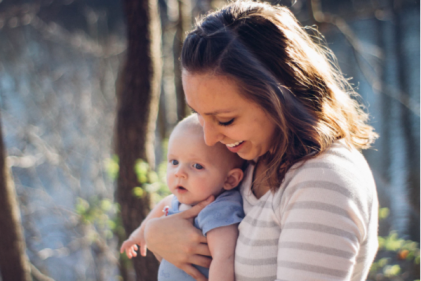It's difficult to answer what weight gain should be seen in the first few months of your baby's life. All babies are so different that there is no ideal size or weight for your newborn baby. All babies are so different that there is no ideal size or weight for your newborn baby. Instead of comparing them size wise to other babies, you should pay attention to their rate of growth. How much are they growing, and how fast? Are they getting bigger or staying the same size? Are they getting heavier or lighter? These are the real questions you should be asking.
If you want a reference point, experts recommend that your baby’s weight at four months should be roughly double their weight at birth. From there opinions vary, but your baby should be growing steadily at their own pace. According to our sources they should grow by an average of one pound and two inches a month, but this can vary, especially if your baby has been unwell.
Whatever the case, your doctor will be keeping a close eye on your baby’s growth. If there is any cause for concern, they will be able to discern this. They will already have your baby’s personal growth curve on record, and will be able to assess your baby’s growth in reference to their genetic disposition (if their family members are small, the odds of them being very big are slim), general growth, the quality of their food, their overall health and their production of growth hormones. These factors all contribute to how big your baby should be and at what stage they should be a certain weight.
If you have genuine concerns about your baby’s growth, however, you should bring it up with your baby’s public healthcare nurse or your baby’s doctor. They will ask you some questions regarding your baby’s food intake and excretion, from which a conclusion can be drawn.
One thing you should really look out for, more so than your child being small, is obesity. An overweight baby is a very unhealthy one, as their little systems cannot handle the strain being obese puts them under. You should not feed them anything with empty calories, such as sweets and juices. You should also look out for signs that your baby is full which will prevent over feeding them. You shouldn’t feed your baby when in fact they want attention, as this will develop an association between food and comfort thus creating a desire for ‘comfort food’.
As your baby gets bigger and more able, you should encourage them to get active with you. This prevents them from reaching the conclusion that being fed is the only way they can get attention from you. It also helps keep them fit and develop musculature, which will be important as they start crawling and walking. Start by getting them to reach for objects on the floor, stretching their limbs and exercising their muscles as they keep trying to get their toy, and they will eventually realise that they can shuffle around on the floor. Encourage them to try and roll over and eventually get on their hands and knees and crawl. It is these growth milestones that you should be aiming for, rather than an ‘ideal size’.











